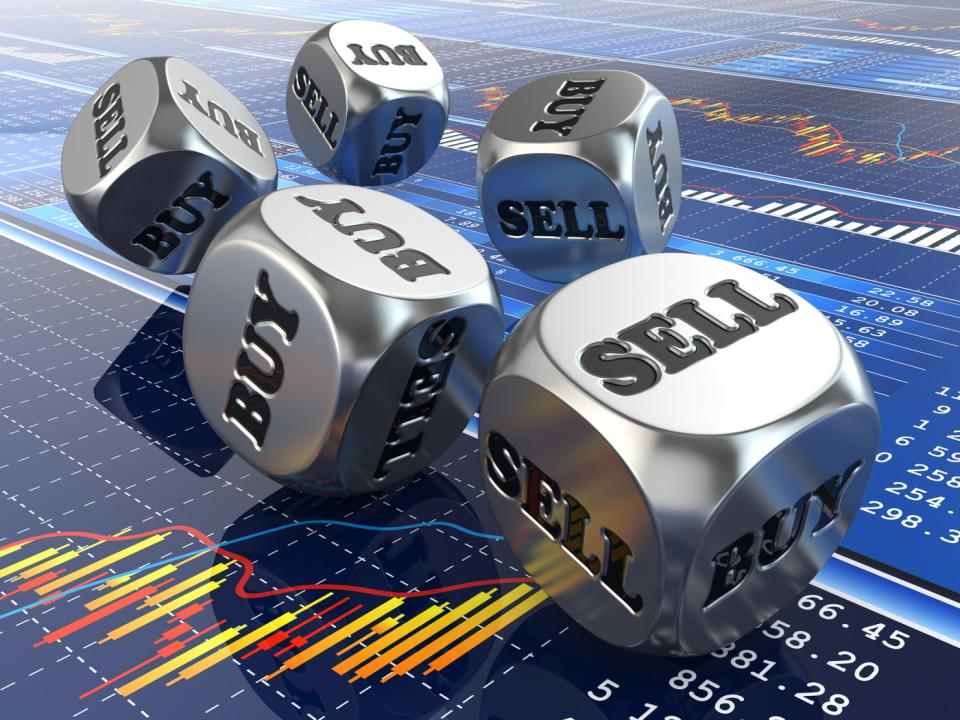2 Ultra-High-Yield Dividend Stocks Billionaires Are Selling, and the Surprising High-Octane Income Stock They Can’t Stop Buying
Wall Street provides a pathway for patient investors of all walks to grow their wealth. But among these seemingly countless strategies, few have generated more consistent returns than buying and holding high-quality dividend stocks over long periods.
Recently, Hartford Funds updated a report that, in collaboration with Ned Davis Research, examined the performance of dividend-paying stocks to non-payers over the last 50 years (1973-2023). Hartford Funds found that dividend payers delivered a 9.17% average annual return over a half-century and were about 6% less volatile the benchmark S&P 500. By comparison, the non-payers managed a far less-impressive 4.27% annual average return over a half-century and were 18% more volatile than S&P 500.
Companies that regularly share a percentage of their earnings with investors tend to be profitable on a recurring basis and time-tested. In other words, they have the right ingredients to increase in value over the long run.

The outperformance of dividend stocks isn’t lost on Wall Street’s brightest minds, either. Thanks to quarterly Form 13F filings, investors can track what dividend stocks billionaire money managers have been buying, selling, and holding.
During the December-ended quarter, billionaires were quite active in a trio of widely owned, ultra-high-yield dividend stocks — “ultra-high yield” in the sense that they sport yields that are at least four times greater than the S&P 500. Whereas two of these income juggernauts found themselves on the chopping block, one surprising high-octane dividend stock was purchased hand over fist.
Ultra-high-yield dividend stock No. 1 that billionaires sent to the chopping block: Verizon Communications (6.51% yield)
The first supercharged dividend stock that was given the heave-ho by more than a half-dozen prominent billionaires during the fourth quarter is telecom behemoth Verizon Communications (NYSE: VZ). All told, seven billionaire asset managers reduced or eliminated their respective funds’ stakes, including (total shares sold in parenthesis):
-
John Overdeck and David Siegel of Two Sigma Investment (3,314,607 shares)
-
Israel Englander of Millennium Management (2,830,060 shares)
-
Ken Griffin of Citadel Advisors (2,106,623 shares)
-
Jeff Yass of Susquehanna International (1,844,350 shares)
-
Steven Cohen of Point72 Asset Management (1,458,200 shares)
-
Jim Simons of Renaissance Technologies (834,522 shares)
One obvious reason for this aggressive selling is the Federal Reserve’s hawkish monetary policy. Since March 2022, the nation’s central bank has raised its federal funds target rate by 525 basis points. The fastest rate-hiking cycle in four decades will make future refinancing and/or deal-making costlier for telecom stocks like Verizon that are lugging around quite a bit of debt.
Another catalyst that may have sent billionaires running for the proverbial hills is the July report from The Wall Street Journal that alleged legacy telecom companies could face massive cleanup costs and health-related liabilities tied to their use of lead-clad cables. Verizon is conducting tests of its own and notes that lead-sheathed cables make up only a small portion of its network.
The more important caveat to the WSJ report is that any determination of fault and financial liability (should there be any) would be made by the U.S. court system. It typically takes multiple years for a verdict and/or dollar figure to be reached in such instances. While the WSJ raises a potentially viable concern for Verizon and its shareholders, it isn’t something that’s going to impact the company’s balance sheet or bottom line anytime soon.
Lastly, billionaires may simply be opting for greater growth opportunities in the new bull market. As a mature business, Verizon’s sales are expected to grow by the low single digits. For instance, full-year wireless services sales increased by 3.2% last year.
But don’t mistake Verizon’s slower pace of growth for weakness. Upgrading its network to support 5G download speeds has led to a resurgence in net broadband additions, which have the potential to encourage high-margin service bundling.
Ultra-high-yield dividend stock No. 2 that billionaires showed the door: AGNC Investment (14.72% yield)
A second ultra-high-yield dividend stock that had top-performing billionaires running for the exit during the fourth quarter is mortgage real estate investment trust (REIT) AGNC Investment (NASDAQ: AGNC). Despite its staggering 14.7% yield, six billionaire money managers were sellers of its stock, including (total shares sold in parenthesis):
-
Israel Englander of Millennium Management (2,332,796 shares)
-
Jeff Yass of Susquehanna International (1,559,922 shares)
-
John Overdeck and David Siegel of Two Sigma Investments (1,501,624 shares)
-
Ken Griffin of Citadel Advisors (300,555 shares)
-
Steven Cohen of Point72 Asset Management (14,400 shares)
Similar to Verizon, rapidly rising interest rates may be the culprit that scared billionaire money managers away from AGNC.
Mortgage REITs are businesses that aim to borrow money at low short-term rates, and use this capital to purchase higher-yielding long-term assets, such as mortgage-backed securities (MBS), which is how the industry got its name. When interest rates rose by their fastest clip in four decades, short-term borrowing costs soared. As a result, AGNC and its peers saw their net interest margin and book values decline. Most mortgage REITs tend to trade very close to their respective book value.
To add to the above, we’re witnessing the longest inversion of the Treasury yield curve in history. A yield-curve inversion is where short-term Treasury bills sport higher yields than Treasury bonds set to mature in 10 or 30 years. Yield-curve inversions have historically preceded every U.S. recession since World War II, but they don’t guarantee that one will occur.
While there are ample reasons to be concerned about AGNC’s near-term prospects, history suggests that buying mortgage REITs when things look their grimmest is often a smart move. When the yield curve eventually normalizes, AGNC’s net interest margin and book value should rebound.
What’s more, AGNC Investment has almost the entirety of its $60.2 billion investment portfolio tied up in highly liquid “agency” assets. An agency security is backed by the federal government in the event of a default. This added protection is what allows AGNC to utilize leverage to its advantage. It’s also the key reason AGNC is able to sustain its lofty double-digit yield.

The ultra-high-yield dividend stock billionaires bought hand over fist: Philip Morris International (5.71% yield)
But not all ultra-high-yield dividend stocks were off-limits for billionaire investors during the December-ended quarter. Among the dozens of widely owned stocks with premium yields, the one that five billionaires couldn’t stop buying was tobacco stock (yes, tobacco stock!) Philip Morris International (NYSE: PM). The top buyers included (total shares purchased in parenthesis):
-
Ole Andreas Halvorsen of Viking Global Investors (3,652,163 shares)
-
Stephen Mandel of Lone Pine Capital (3,005,791 shares)
-
Steven Cohen of Point72 Asset Management (1,156,227 shares)
-
Israel Englander of Millennium Management (161,327 shares)
-
Ray Dalio of Bridgewater Associates (97,886 shares)
What’s so surprising about billionaires piling into Philip Morris’ stock is that adult smoking rates in developed countries have been largely declining. As consumers have become aware of the potential long-term dangers of tobacco use, cigarette shipments have shrunk.
However, Philip Morris has geographic diversity as a clear competitive advantage. This is a company whose products can be found in approximately 180 countries. If cigarette shipments are weakening in a couple of developed markets, there’s a good chance demand from faster-growing emerging markets is offsetting this weakness.
Something else working in Philip Morris’ favor is its pricing power. Tobacco products contain nicotine, which is an addictive chemical. History has shown that smokers are willing to absorb hefty price hikes to continue their habit. This exceptional pricing power helps the company counter cigarette shipment weakness in developed countries.
But the top catalyst for Philip Morris International might just be its push into smokeless products, such as the company’s IQOS heated tobacco system. In 2023, shipments of heated tobacco units jumped nearly 15%, and the company’s share of the global heated tobacco market rose 120 basis points to 9.1%.
At 13 times forward-year earnings, Philip Morris is trading at a 14% discount to its average forward-year multiple over the last five years.
Should you invest $1,000 in Verizon Communications right now?
Before you buy stock in Verizon Communications, consider this:
The Motley Fool Stock Advisor analyst team just identified what they believe are the 10 best stocks for investors to buy now… and Verizon Communications wasn’t one of them. The 10 stocks that made the cut could produce monster returns in the coming years.
Stock Advisor provides investors with an easy-to-follow blueprint for success, including guidance on building a portfolio, regular updates from analysts, and two new stock picks each month. The Stock Advisor service has more than tripled the return of S&P 500 since 2002*.
*Stock Advisor returns as of April 8, 2024
Sean Williams has no position in any of the stocks mentioned. The Motley Fool recommends Philip Morris International and Verizon Communications. The Motley Fool has a disclosure policy.
2 Ultra-High-Yield Dividend Stocks Billionaires Are Selling, and the Surprising High-Octane Income Stock They Can’t Stop Buying was originally published by The Motley Fool

